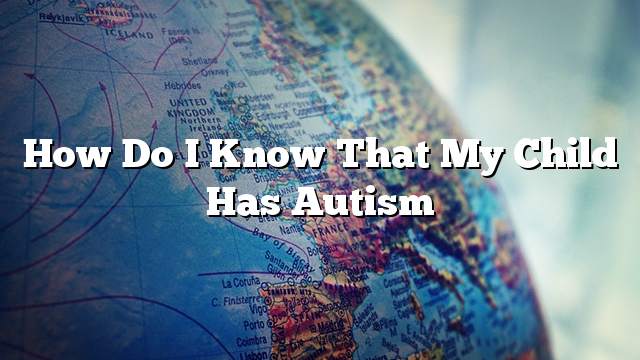Autism
Autism is a disorder of growth that hinders the brain’s work in absorbing information, affects the way people talk and communicate, and it is difficult for autistic patients to establish clear and strong relationships and relationships with others, but the positive thing in this disease is that in the case of early diagnosis Many people who have been infected can help to restore their lives more naturally.
Causes of Autism
So far there is no known cause of this type of disorder, but existing scientific research shows genetic factors exist in the child, and the susceptibility to autism, and scientists are working hard to identify the gene associated with this type of disorder, and may also be the result of other medical problems Adversely affect brain growth.
Symptoms of autism
Symptoms of the disease appear during the first three years of the child’s age, including:
- Weakness of the ability to social communication: the tendency to loneliness and loneliness, so that the child spends little time with his parents and relatives and strangers also significantly, and does not show any reactions or reactions when he sees his parents, does not look directly at the person who speaks to him, and shows little interest to form friendships With others, and his response is almost non-zero towards the emotions of others with him, such as a smile or looking at the eyes, and the inability to recognize the feelings of others also, as if seeing his mother sad or crying, it does not show a natural interaction with it.
- Poor language communication: so that the development of language is slow, or may not develop at all, the child may appear as deaf.
- Difficulty of oral communication: Do not start the child to talk if he began to complete, and repeat the pronunciation of specific words, or the last word of the sentence heard.
- His activity, games and interests are frequent and limited: The child performs specific movements and repetitions in the same style, such as the same game and exaggerated, and resist any change in the routine, such as moving from place to place, or even changing clothes or type of food.
- Strange and striking movements: hands fluttering, shaking his body in exaggerated amounts.
- Attaching abnormally to things: the child insists on keeping something, thinking about the same idea, associating with a specific person and rejecting someone else.
- Child activity may be excessive or less than normal, as well as abnormal behavior, such as hitting the head with the wall or biting for no apparent reason.
- Autistic people may suffer from physical disability or other mental disorders that affect the functioning of the brain, such as epilepsy, mental retardation, or depression, especially in adolescence.
